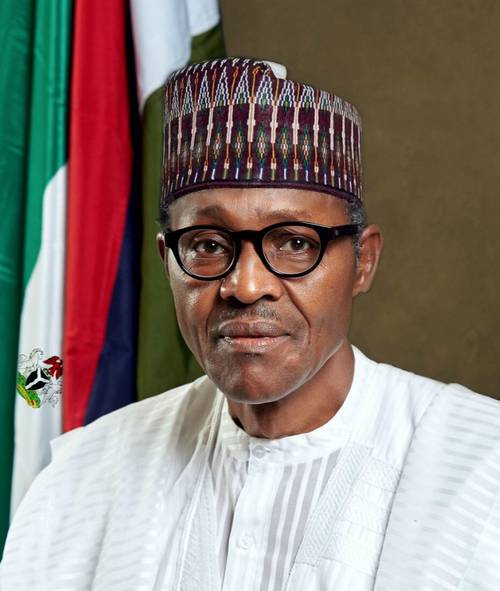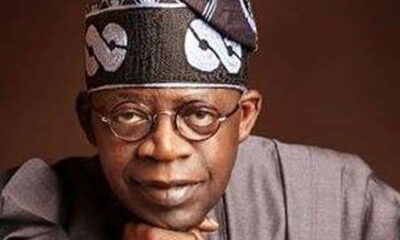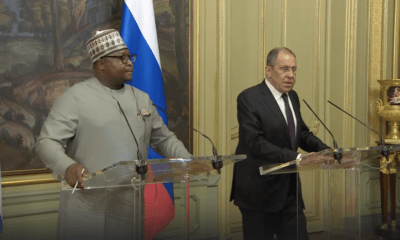Democracy & Governance
President Buhari’s One Year in Office – The Battle for the Soul of Nigeria -By Assaprogopwa Aaron

It is my humble submission that May 29th, 2015 marked the commencement of the battle for the survival of the soul of a nation (Nigeria) rather than the change of baton from one government administration to another.

President Muhammadu Buhari
It feels like only yesterday when Nigerians were getting ready to go to the polls in what turned out to be the most interesting election the nation has seen. Apart from the obvious pre-election political interplays and even debaucheries which characterized the election, the results produced an unusual winner to the pleasant surprise of many home and abroad.
Elected in a manner that was unprecedented in the nation’s history, Nigerians understandably had high expectations that the emergence of Muhammadu Buhari as President-elect following the 14th February, 2015 general elections was not just an electoral victory but more significantly, a victory for the survival of the soul of their dear nation – a nation in dire need of a political and moral soul.
Thus, on the 29th of May, 2016; the current administration led by President Muhammdu Buhari would have attained one year in office as a government and as is the practice in most democracies around the world, the band-wagon effect of passing verdicts in the forms of eulogies or obituaries as the case may be is to be expected. Of course there will be criticisms of a new government and every single naysayer jumping on the train to contribute to the criticisms, but whether these criticisms are constructive or not will always be questionable.
Besides, faced with a barrage of criticisms – most often of which are disproportionate as the perceived opportunity that the band-wagon effect of assessing a government’s first year in office brings to play; the government in power is left with no option than to launch its own counter offensive usually with scores of rallies, town hall meetings or press conferences all lined up to highlight the supposedly not so substantiated achievements of the government. As a result, the biggest casualty in this drawn battle of wits therefore becomes governance.
However, the truth of the matter remains that a government is more likely to err when rather than acting it is forced to appear to act. Good a thing however, President Muhammadu Buhari is not a man to be so easily swayed or derailed.
A government is more likely
to err when rather than acting
it is forced to appear to act…
Nonetheless, when a relative phenomenon like time, which can only be perceived, becomes the tool for passing absolute judgment on ground realities and concrete achievements of a government, the likelihood is that one runs the risk of falling prey to propaganda. It can be compared to a marriage for instance; the first anniversary is too nascent a landmark to write eulogies or obituaries about. Thus at best, a government’s first year in office in my view can and ought to be used for reflection, introspection, even interrogation but certainly not for passing verdicts – successes or failures as the case may be.
Unfortunately, this piece of homely wisdom appears unacceptable to the collective consciousness of soothsayers, doomsayers, naysayers and even praise-singers alike. Nigeria like she is well known is amidst a blitzkrieg of polarized views wherein depending on one’s own predilection one would find him/herself living in a country galloping towards its demise or cheerfully singing all the way to paradise. It would therefore be a travesty to assess the successes and or failures of government in form of a laundry or bucket list especially since the tools at any governments’ dispensation are the same – legislations and executive actions.
In reality therefore, what sets apart one government from the other is the intent and implementation of its policies and actions. For example, whilst the previous regime of former President Goodluck Ebele Jonathan and indeed successive governments in the last 16 years (under the umbrella of the then ruling Peoples’ Democratic Party) may have done what they thought was best for the country (including embracing the illusions of symptomatic and short-term economic privileges brought about by surging oil prices at the time while opening its doors to unprecedented levels of corruption in public and private sectors of the economy to the detriment of the nation); the present government led by President Muhammadu Buhari has chosen the path of enablement over entitlement i.e. the battle to ensure the survival of the soul of the nation through a zero tolerance policy for corruption in both the public and private sectors (wherein in my view lies its biggest accomplishment so far) amongst other obvious achievements.
Thus, given the fact that one year is hardly tantamount to asserting whether a government is adequately serving the country’s needs, it is nevertheless still a good time to at least give the thought a fleeting view such that doesn’t necessarily have to culminate in declaration of verdicts of any sort.
Of course in democracies, the first year of an administration is typically when the most dramatic political and economic reforms are initiated. For example, Ronald Reagan initiated his landmark tax cuts, and Margaret Thatcher defeated the U.K.’s striking coal miners and broke the back of organized labor during their first years in office. But same cannot be said for other less developed democracies especially for one like ours except of course in the case of the administration of President Muhammadu Buhari where even to cynics of his administration, there is no denying the fact that a landmark socio-political reform especially in the fight against corruption had already commenced prior to May 29th, 2015 when he took the oath of office.
“The Government of the day
should be asked to share its
failures and the opposition should
be made to acknowledge what it
considers are the Government’s
accomplishments.”
In my view hence, one of the most effective ways of assessing a government’s performance would be by posing counter intuitive question to both the government and the opposition. The Government of the day should be asked to share its failures and the opposition should be made to acknowledge what it considers are the Government’s accomplishments. Rational replies to both these queries would help arrive at a more balanced evaluation of the Government’s performance after one year.
But it is also common knowledge that President Muhammadu Buahari in particular and to a large extent, members of his cabinet have lived up to this bidding by taking every available opportunity that comes their way to not only acknowledge some painful facts or realities that average Nigerians pass through daily as a result of policies of government but have also been seen to plead with Nigerians for understanding and patience while they worked tirelessly at tackling the vast issues affecting their lives.
Perhaps is time the opposition played their own role by bringing to the table rational and honest assessment of President Buhari and APC’s first year stewardship as a government. This way, Nigerians will be able to arrive at a more balanced evaluation of the Government’s performance after one year. Till this nationalistic discourse is performed; anecdotal evidence of this administration’s perceived efficiency or failures (depending on what side of the divide one belongs) apart, the true extent of our collective will as Nigerians in this continuous battle for the soul of our nation would not have been duly appreciated given one year of this administration in office under the leadership of President Muhammadu Buhari.

















